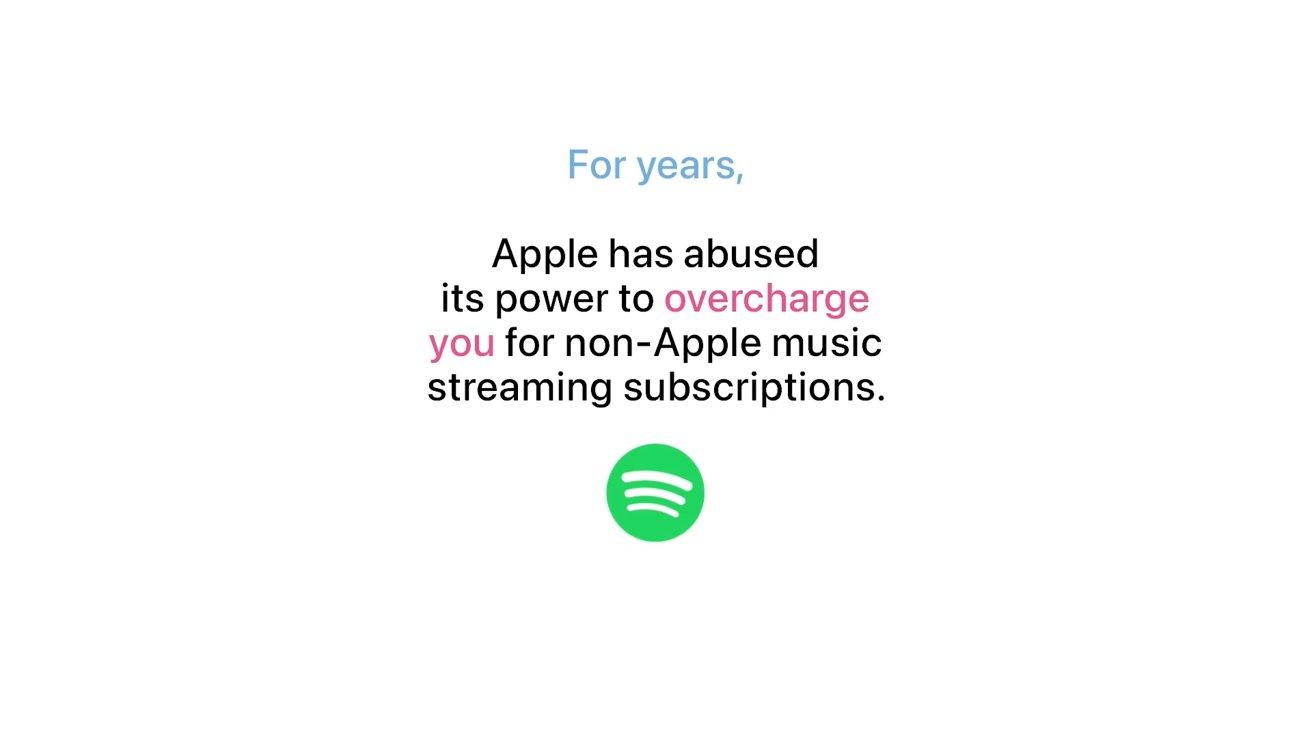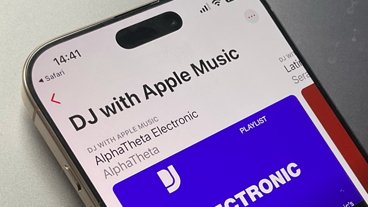Consumer advocacy group Euroconsumer is launching a coordinated class-action suit in Belgium, Italy, Spain, and Portugal, alleging it was Apple's fault that music services raised subscription charges.
"Apple didn't play fair," reads the Euroconsumer class action suit page. "As a big tech player, Apple abused its power to impose up to 30% extra charges on non-Apple music streaming services like Spotify, Deezer, YouTube Music, SoundCloud, Amazon Music, Tidal, and Qobuz through its Apple App Store."
It then points out that third-party streaming services raised prices on iOS customers to help cover the lost revenue. Euroconsumer claims those increased prices led to customers paying excessive fees of roughly 3 euros per month to use their service of choice.
The group says that Apple has earned roughly 259 million euros in "unfair profits by overcharging consumers through their non-Apple Music streaming services" in Europe alone. In response, it is "fighting to reclaim the overpaid money for more than 500,000 victims in Belgium, Italy, Spain, and Portugal."
It should be noted that companies aren't required to increase fees in order to operate on the App Store. As pointed out above, these companies are simply forcing consumers to cover the cost.
And, many of these companies still claim that Apple takes more than it does. Apple changed the payout structure of the App Store, with a new 15% tier for subscriptions that extend over a first year, instead of the blanket 30% that Spotify still claims Apple demands on all subscriptions.
Still, Apple is facing increased scrutiny from both advocacy groups and regulators alike. In March, the European Union levied a $2 billion fine against Apple over anti-steering behaviors, despite the fact that it does not hold a dominant position in music streaming in the EU.
This isn't the first time Euroconsumers has gone after Apple, either. In 2020, it sued Apple over an iOS update that throttled iPhone CPU performance in the name of system stability.
And, in 2021, it demanded Apple address allegations of excessive iPhone battery drain in iOS 14.5 and later software updates.
 Amber Neely
Amber Neely






-m.jpg)






 Charles Martin
Charles Martin


 Wesley Hilliard
Wesley Hilliard
 Stephen Silver
Stephen Silver
 William Gallagher
William Gallagher

 Marko Zivkovic
Marko Zivkovic







28 Comments
This is a frivolous lawsuit. The EU has just forced apple to allow alternative App Stores. If you use Apple's APP Store, you must adhere to their rules and fee structure. If you don't like it, create your own app store. End of story.
I don't know what it is lately but large groups of people appear to have lost their ability to even think logically. When the App Store debuted, we went from a situation where the developer received 40% of the retail price for their product. The rest went to the retailer - 40%, the wholesaler - 10%, and the jobber - 10%.
Now software, and many software services, are marketed directly to the consumer through App Stores. The only people who receive any money are the developer: 70% to 85%, and the stores who, for the privilege of using their platform charge between 15% - 30%. In fact those who operate App stores all charge the same - 15% - 30%. Common examples are both Microsoft and Google. Since when os the company that operates the store not entitled to anything? None of the App store companies set the prices, the developers set them! Accusations that Apple (being picked on because they are the biggest) is gouging the consumer is rhetoric promulgates by those who have an agenda such as activists, and lawyers, to justify their unreasonable demands. As to the law suits Apple is well able to take care of their own affairs unless the judges have all fallen victim to this sloppy thinking.
"
i mean that is what 99% of companies do.
any extra costs/fees/tarifs/taxes are passed on the consumer
if given a choice between raising prices to account for extra costs
vs extra profit
they will always choose extra profit, that's what they are paid handsomely to do
Visa and Mastercard have to pay more than $30B for the way they add cost to products. Why wouldn't US consumers go after App Store?